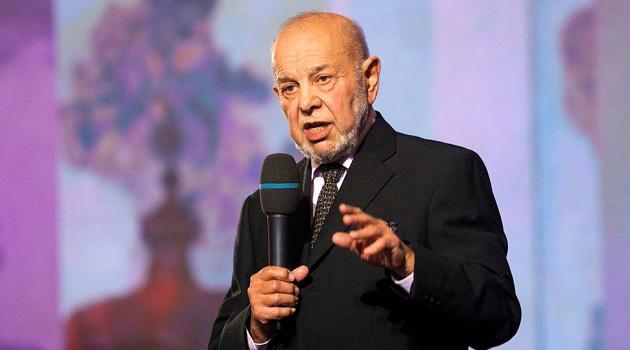Mr Marek Přibil is doing his best to convince us, for the umpteenth time, that inclusion in education is the ruin of the Czech schools. He also alleges that what he describes as an absolutely untrustworthy failure has been produced by the Social Democrats.
The commentator has done this through the shallow, superficial arguments of his article entitled “Propadák političky Valachové” (“The failure of politician Valachová”) published in the newspaper Mladá fronta DNES on 12 April. In his commentary, the author calls the Education Minister the “mother of Czech inclusion” in the belief that this is a pejorative label.
On the contrary. Madame Minister can be pleased by this designation and it is an honor for her.
According to Přibil, inclusion has reportedly already cost the state as much as a billion Czech crowns, the consequence of which so far has just been 200 children living with disabilities (if that many) who enrolled into mainstream schools last September. My God!
Could anybody imagine inclusion so narrowly and spend that much public money on it? The program actually would be very limited if that were the case.
The truth of the matter is very different. Inclusion is a broad, comprehensive project to incorporate children into mainstream education who have not yet been integrated into mainstream education (for the widest possible range of reasons) and it has been necessary to create various auxiliary programs to eliminate this inequality, which stinks to high heaven.
Inclusion is not now and never has been a one-off event – it is of longer duration, and involves unreal efforts on many fronts, from bottom to top and left to right. The absence of such a program here has been and is still a subject of criticism by all of cultivated Europe, and many fines have been levied against the Czech state for the damage it has done to children who, once they grew up, were unable to apply their capabilities on the labor market because of the education they were allowed to access.
The program of inclusion is also supposed to form the behavior and mindset of children who do not live with disabilities, which is actually the biggest problem and has not yet been financially feasible. All of this has been sufficiently explained in many expert discussions, in public, and it may have even been comprehended by some rational people.
At this point it is necessary to hurry up and state that the Czech schools are so advanced and so good that the program of inclusion does not impose any grave barriers to their achieving their aims. By saying this I do not mean that the hundreds and thousands of children who are now being born, or who are not yet of school age, are automatically safe from the dangers of various inequalities in education.
Our divided society is clearly signaling to us that this is not yet the case. Here I have in mind the still-dominant prejudices about the alleged ineducability of Romani children, whose “disabilities” are primarily social.
What, though, does social disadvantage have to do with a low level of intellectual ability, or with a mental disorder of some kind? Other persistently repeated half-truths and nonsense here are the claims circulating that teaching assistants are being recruited from the ranks of retail sales clerks.
How would that even be possible, are these so-called “salesgirls” college educated? Wasn’t part of the money spent on the inclusion program exactly for the training of such teaching assistants?
Then there are the allegations that the vast majority of educators in the mainstream schools are against inclusion! Is that claim the consequence of some survey whose findings can be demonstrated?
I have different information, but I would never allow myself to make authoritative claims without referencing conclusive findings. I am also unaware of the Czech “special schools” having ever been praised elsewhere in Europe, and I have wandered around Europe for quite a long time, visiting the broadest possible range of educational front lines.
Whether or not such schools are internationally renowned has nothing to do with what could indeed be their brilliant achievements. However, I do know something about the tragic impact of those schools on pupils who are evidently not disabled and are enrolled in them despite that fact.
There have been quite a few such pupils in this country. Lastly, inclusion is also said not to fit in with the concept of assimilation into Czech society.
Perhaps it is high time for us to clarify the distinction between assimilation and integration, to elucidate what a tragic impact the assimilation efforts of the past totalitarian regime had on a massive part of the Roma community today, and to remind ourselves what kind of awareness of their position in society those children took away from the then-“special schools”. Be that as it may, one thing is certain: Equality is one of the pillars of a democratic society.
If equality does not exist, and if there are no efforts to pursue it, then we cannot speak of this country being a full-fledged democracy. Such a perspective must form the cornerstone of determining who is and is not a real democrat here.
This issue has nothing to do with being a member of the Civic Democratic Party or the Social Demcoratic party. Let’s stop this nonsense once and for all!
First published on the author’s blog on Aktualne.cz

